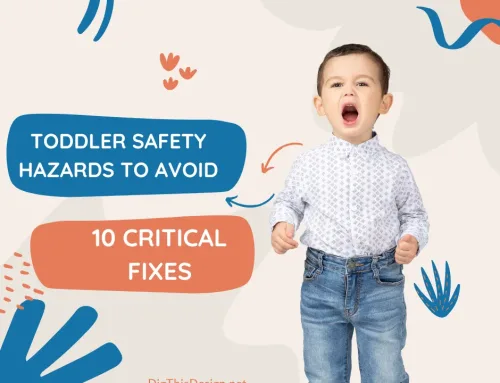Some homeowners take pride in being capable of home projects they do by themselves. For example, repairing the furniture, and modifying a room to woodworking. Handling DIY projects can be a fun and unique learning experience. Furthermore, many people prefer to do home projects on their own to save more money.
However, even if you have the skills and knowledge to do various home DIY projects, it’s important that you possess the right tools to get started. Whatever minor or main DIY project you try to do, you must have the tools needed for the project. Otherwise, finishing it won’t be easy or simply impossible.
So, for homeowners out there who are planning to DIY their future home projects, here are seven essential tools that will help you to succeed in your projects.
1. Hammer
Perhaps the most helpful tool in every DIY project out there is the hammer. The hammer is a necessity for almost everything. While you can easily find a hammer from a store, be aware that there are several types of hammers out there, and each of them has a different purpose.
Claw Hammer
It is a hammer of the regular type often used to whack or remove nails from other materials.
Double Headed Hammer
This intended heavy-duty double-headed hammer is whacking thicker and bigger nails needed for larger projects and operations. It uses if you are slamming a heavy nail into a metal or other materials firmer than wood.
Demolition Hammer
This type of hammer is best needed when you need to whack down an entire wall or house. You can use this if you need to modify or remodel a particular room in the house.
Whatever type of hammer you need, go to Datapowertools.co.uk and other notable hardware stores can provide you with the specific hammer you need for a particular DIY project.
2. Screwdrivers
If you’re planning to do some DIY woodworking projects, you’ll need some screwdrivers in attaching screws that will help keep the materials together. You can also use the screwdriver to fix or disassemble something.
Like the hammer, screwdrivers are also available in different types. But most homeowners often use the Phillips’ head and the flathead. However, if you wish to save money from buying all the screwdriver types, you can invest in an interchangeable one. For this type, you can change the heads every time you need to screw something with different patterns.
3. Adjustable Wrench
If the hammer and screwdriver are needed tools for using nails and screws, you’ll need a wrench when dealing with nuts and bolts. Also, wrench tools are available in various sizes and lengths, depending on the nuts or bolts used for the project. But most of the time, some homeowners settle with owning one adjustable wrench at home for doing various DIY projects like plumbing operations, construction, etc.
4. Utility Knife
A utility knife may do the job for DIY projects that require you to trim papers, mark things, or cut pieces of wood. A utility knife is much safer and sharper to work with than a regular scissor which is only convenient for cutting paper. Furthermore, you can also use this tool to sharpen pieces of wood, add notches, and much more. Just make sure to check the sharpness of the utility knife before using it for every project for better results.
5. Handsaw
Another essential tool you must have on hand is a handsaw. A handsaw is handy in cutting thick pieces of wood. But like any other tool, a handsaw is also available in various types. The traditional western is the most used for cutting pieces of wood. It utilizes by pushing the tool forward through the section.
Whatever type of handsaw you get, make sure to check the number of teeth it has, as it matters when you need to cut thicker pieces of wood. The more teeth it has, the more precise the results will be.
6. Pliers
A pair of pliers helps grasp things, keep things in place, bend, or twist hard wires, or pull things together. This tool is also perfect for loosening tight nuts, removing fixtures, pulling out hard nails or screws, and much more. There are also various plier types out there but having the Needle nose pliers and the pliers in your toolbox would be enough. The pliers are beneficial for most DIY projects, while the needle- nose pliers are best for handling electrical-related projects.
7. Drill
The drill is used for drilling holes onto hard materials like wood, or even concrete, making it an essential tool for every DIY project. There are two types of drills, namely the corded and the cordless. Thus, before buying one, you need to familiarize how each of them works and see if they fit on the current DIY project you have.
Corded Drill
This one has a power cord which means you can only use this if you have a nearby outlet to plug it in. However, this type is the best choice if you need to drill on hard materials like thick wood or concrete.
Cordless Drill
The cordless drill doesn’t have a cord but with a rechargeable battery instead. You can bring this anywhere around the house without worrying about finding an outlet. However, they’re not as powerful as the corded type.
In Conclusion
There are still endless lists of tools for your home DIY projects out there such as tape measures, clamps, flashlights, and so on. But these seven tools on the list will be more than enough to help you get started into whatever DIY project you have in mind. Along the way, when you become better and more expert in pulling off DIY projects, you’ll also be able to discover additional DIY tools and add them to your toolbox.
Images Courtesy of Unsplash.
Other Posts You Might Enjoy:
Your DIY Home Starter Kit Essentials
Hammer Drill VS Impact Drill- What to Choose for Your DIY Projects





